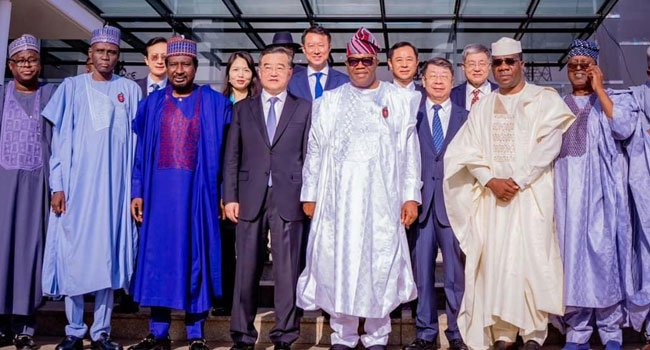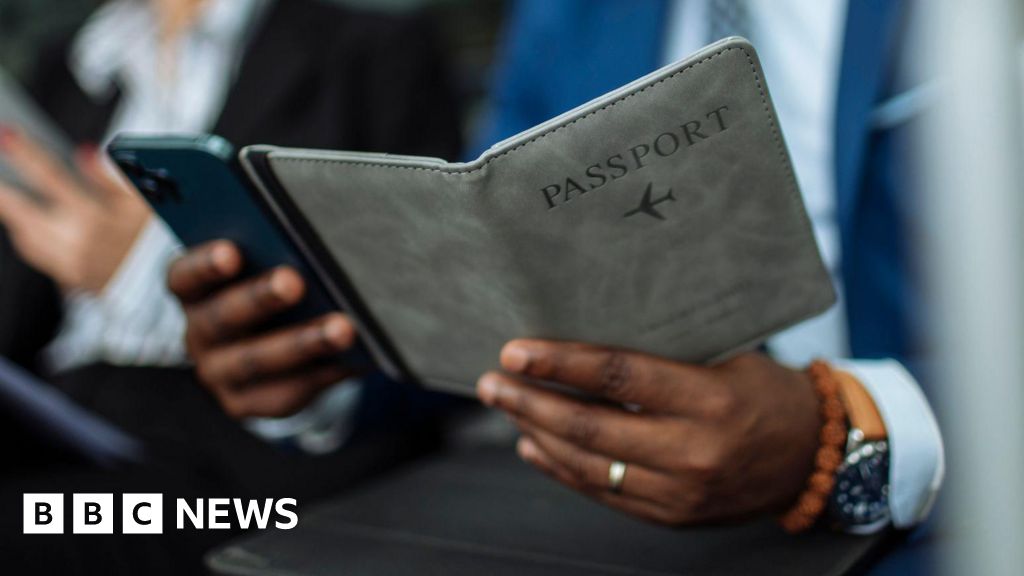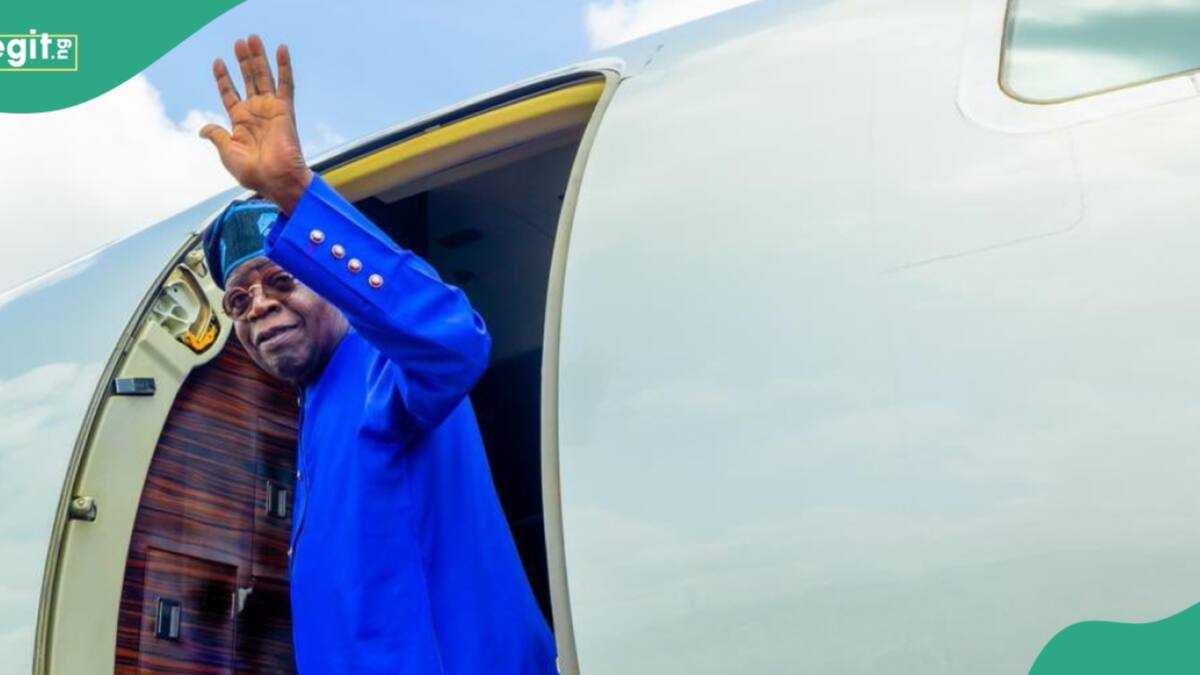A former Minister of Foreign Affairs, Sule Lamido, has attributed the ongoing challenges facing his party, the Peoples Democratic Party (PDP), partly to the repercussions of divisions among northern leaders in 2007.
Lamido, who has been a long-standing member of the PDP since its inception, was asked in a recent interview why he remained loyal to the party without shifting allegiances despite the ongoing crisis within the umbrella camp.
Explaining the reason for his stand and perspective on the present status of the PDP, the former Governor of Jigawa State said: “Understanding the essence of the PDP may pose a challenge for individuals under the age of 30. We are discussing a timeline that spans from 1998 to the present—almost 30 years. Those who were around 10 years old during that period would now be in their early 30s.
“Thus, articulating the philosophy of the PDP is intricate, underscoring the importance of historical context. One cannot evaluate the current state of the party without considering its origins and evolution. In 1998, Nigeria was grappling with a profound crisis of trust and cohesion. As a federation, we had lost faith in one another, leading to significant divisions within the country.
“This schism was primarily a consequence of the annulment of the June 12 election, which was recognized as the most fair and transparent election in Nigeria’s history. It illustrated that Nigerians could rally around a common vision: the candidate, Abiola, hailed from the south, while his running mate, Baba Gana Kingibe, was from the north—both being Muslims. This unprecedented unity was a significant milestone for Nigeria.
“Abiola won the election fairly, and Nigerians felt a sense of cohesion across regions and religions. Then, suddenly, the election was annulled. People started questioning why—was it because the Yoruba candidate won? Interestingly, many Yoruba people didn’t initially support Abiola. They felt a certain resentment toward him, likely because Abiola was a self-made man who had once opposed Chief Obafemi Awolowo under the NPN. So, despite winning, some in the Yoruba community didn’t necessarily see him as their representative.
“Once the election was annulled, certain groups, like Afenifere and other Yoruba elders who hadn’t actively supported June 12, began to claim the victory as part of a ‘Yoruba agenda.’ But in reality, Abiola’s victory was about uniting Nigerians, not about regional interests. This misappropriation laid part of the groundwork for the issues we see today.
“When the PDP was formed, we reflected on how to restore Nigerians’ trust, which had been shattered by the June 12 crisis. At that time, the focus wasn’t on infrastructure or economic policies; it was about rebuilding Nigeria as a united nation, a place where people could believe in one another again.”
When Asked whether the PDP succeeded in restoring that trust, Lamido said: “When we established the PDP, we decided that the first order of business was to address the crisis of confidence caused by June 12. Normally, political offices aren’t assigned to specific regions; democracy is meant to be led by the majority of votes. But we realized we needed to set aside strict democratic principles temporarily to heal our wounds. So, we decided to locate the presidency in the South West as a symbolic gesture to appease the Yoruba people for the pain caused by June 12.”
“At that time, Baba (Olusegun Obasanjo) was in prison, but we saw him as a figure who transcended regional interests. Among the Yoruba leaders, we had options like Olu Falae, Pa Adesanya, and Bola Ige. However, they were largely seen as tribal leaders. Obasanjo, in contrast, was widely regarded as a nationalist—someone who had fought in the civil war and helped restore democracy. We felt he could symbolise a new, united Nigeria, so he became the face of this reconciliatory effort.
Even with Obasanjo’s presidency, some Yoruba people criticized him for not prioritizing Yoruba interests, as they expected him to act primarily as a Yoruba leader. But Obasanjo insisted his focus was on Nigeria as a whole, not on ethnic agendas. He served two terms but resisted attempts to extend his tenure.
“During his presidency, he successfully stabilized the country within a few years. The economy began to recover, and Nigeria was on the path toward a new renaissance. The focus was on addressing fundamental human issues and development, with a genuine drive to unify the nation politically and socially. So, the PDP has done what is almost impossible in Nigeria: to restore Nigeria,” the former Governor told Daily Trust.
Responding to the interview’s quest on whether the history was part of the reason why he is still in the PDP despite the current crisis, Lamido said:“No, no, I’ll get to that. By Obasanjo’s third year in office, the country had stabilized, and some of his former allies felt he should step down after four years, paving the way for someone else. This marked the start of internal tensions, even among close associates and former military colleagues who began opposing him.
“Here was a man who had worked to restore Nigeria’s unity, only to face resistance for wanting a second term. He was undermined and, reportedly, had to humble himself just to secure that second chance. I heard he was even made to kneel and beg.”
Clarifying whether the claims on Obasanjo’s bid for another term were true or mere speculations, he said: “Well, on the eve of the 2003 primaries, his vice president supposedly claimed he held full control over the PDP and could decide if Obasanjo would get a second term or not. I’m just recalling history here—there’s no intent to embarrass anyone.”
He added: “To understand today, you have to look back at yesterday’s events. Obasanjo ultimately secured the ticket but under humiliating circumstances. This was a former general, a past head of state—yet he was subjected to this. Given his sacrifices for Nigeria, he felt he should be allowed to complete his two terms and exit on his terms.
“By his second term, he might have thought, “If I almost didn’t get through my first term, what happens when I leave?” The human instinct to secure his legacy kicked in.”
Asked whether he encouraged the former President to pursue a third term, Lamido said: “No, I’m speculating here, just trying to put myself in his shoes. I believe that after all he did for Nigeria—from stabilizing the country to resolving our debt crisis in Europe—he deserved recognition.”
Obasanjo Did Attempt A Term
Asked whether Obasanjo made attempts for a third term in office, the former Governor said: “Yes, he did attempt a third term. I heard he justified it by saying, “If I leave now, with just four months left, I’ll be betrayed by those I considered allies”. Maybe that’s why he tried for a third term. But it collapsed, and he brought in Yar’Adua.
“Yar’Adua had strong leadership qualities, and he came from a respected family. And those who contested against him were northerners, allies of his late older brother. In 2007, the PDP was powerful, controlling over 25 states, while Buhari had no stronghold. Yet, Buhari claimed he won against the PDP and challenged the results up to the Supreme Court. We started seeing cracks in the North from that point.”
[Are you saying these cracks in the North are behind the PDP’s current weakness?
“That’s part of it. Yar’Adua won but passed away, and then we saw crisis after crisis, much of it from within. By 2014, prominent PDP members had defected to the APC, attacking the PDP as corrupt and divisive. They were former governors, ambassadors, and even past presidents.
“If you look at the election results from 1999, 2003, 2007, and 2011, the PDP outperformed all other parties combined. But it was these former PDP members, who switched to the APC that defeated the PDP in 2015,” Lamido noted.
We Are Working Underground Ahead Of Next Election
Speaking on the lingering crisis within the PDP and how it plans to bring aggrieved members back to the fold ahead of the 2027 general elections, Lamido said he, alongside other stakeholders, are working underground to restore the once-ruling party.
He said: “God can touch their hearts and restore their sense of dignity and responsibility to see that their actions affect Nigeria’s history and future. I believe it’s possible.
“We’re working, but we’re keeping our strategies private. We are praying and working underground for the PDP’s restoration—not for personal gain but for Nigeria’s sake. The Nigerian people are suffering because of PDP’s past failures.”

 2 weeks ago
3
2 weeks ago
3















 English (US) ·
English (US) ·